
How to pass the NCLEX exam at the first attempt
Passing the NCLEX (National Council Licensure Examination) is a monumental step in launching a successful nursing career. This exam evaluates not just knowledge but also critical thinking and decision-making skills that are essential for safe and effective nursing care. While daunting, the NCLEX is conquerable with the right preparation, strategies, and mindset.
This ultimate guide covers everything you need to know on how to pass the NCLEX at your first attempt, including creating an effective study plan, mastering test-taking strategies, and understanding the structure of the exam. We’ll also include actionable tips for managing stress and provide links to resources that can help you prepare.
How do you know if you passed the NCLEX right away? Understanding the NCLEX: A Foundational Overview
What Is the NCLEX?
The NCLEX is the gateway to becoming a licensed nurse in the U.S. and Canada. It comes in two forms:
- NCLEX-RN: For aspiring Registered Nurses.
- NCLEX-PN: For Practical or Vocational Nurses.
Both exams utilize Computerized Adaptive Testing (CAT), which tailors questions based on your performance. This adaptive format means the number of questions and difficulty levels will vary from candidate to candidate.
How to pass the Nclex: NCLEX Exam Structure and Question Types
- Minimum Questions: 85 (PN) or 75 (RN).
- Maximum Questions: 145 for both.
- Time Limit: Up to 5 hours.
- Question Types:
- Multiple-choice
- Select-All-That-Apply (SATA)
- Fill-in-the-Blank
- Drag-and-Drop
- Hotspot
You can read our post titled What is the NCLEX Exam? Everything You Need to Know to get a comprehensive overview of what the Exam is all about.
Content Areas Covered: How to pass the nclex!
The NCLEX tests candidates across four major areas:
- Safe and Effective Care Environment: Focuses on management of care and safety.
- Health Promotion and Maintenance: Covers growth, development, and prevention.
- Psychosocial Integrity: Emphasizes mental health and coping strategies.
- Physiological Integrity: Includes basic care, pharmacological therapies, and reduction of risk potential.
Creating a Winning Study Plan
Assessing Your Current Knowledge
To create an effective study plan, you need to understand your starting point:
- Take a Diagnostic Test: Identify your strengths and weaknesses by completing a mock NCLEX exam.
- Analyze Results: Categorize areas into strong, moderate, and weak topics.
Building Your Study Schedule
Consistency is key when preparing for the NCLEX. Develop a realistic study plan that includes daily and weekly goals.
Sample Study Schedule
- Week 1-2: Focus on weak areas identified in the diagnostic test.
- Week 3-4: Review moderate areas and incorporate practice tests.
- Week 5-6: Simulate exam conditions with full-length tests and refine test-taking strategies.
NCLEXREVIEWPREP: We offer three services. For individuals studying for their exams, we can provide you with the exact questions and answers you will receive on the exam. Check out our RN/PN Exact Exam Questions & Answers service.
Study Techniques That Work
- Active Recall: Use flashcards to quiz yourself on key concepts.
- Practice Questions: Aim to complete at least 75 questions daily to mimic exam conditions.
- Note Summarization: Condense complex topics into brief summaries for quick review.
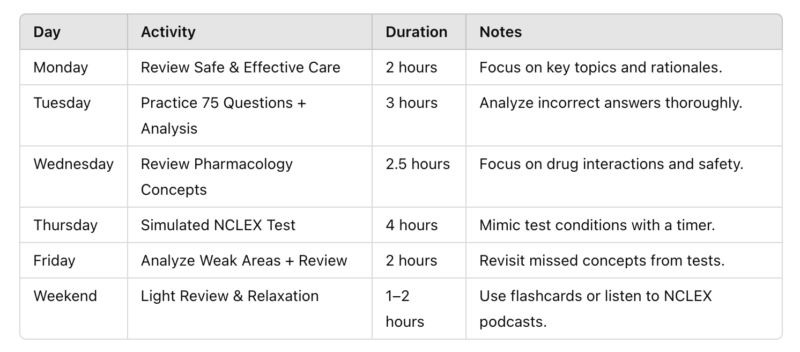
Best Resources for NCLEX Success
How to pass the nclex: Top-Rated NCLEX Prep Books
- Saunders Comprehensive Review for the NCLEX-RN: Known for detailed content review and practice questions.
- Kaplan’s NCLEX-RN Prep Plus: Ideal for test-taking strategies.
- Lippincott PassPoint: Offers simulated exams.
Recommended Online Platforms
- Nclexreviewprep.com: Access exact exam questions for targeted preparation or upgrade your nclex score.
- UWorld: Renowned for detailed rationales and practice questions.
- ATI Testing: Great for comprehensive learning.
Mastering Test-Taking Strategies
Understanding Question Logic
If you arrived here asking yourself how to know if you passed the nclex right away, then read below carefully.
- Prioritize Safety: Always choose the answer that ensures patient safety.
- Maslow’s Hierarchy of Needs: Address physiological needs before psychological needs.
- ABCs: Airway, Breathing, and Circulation questions often take priority.
Elimination Techniques
When unsure of an answer:
- Eliminate obviously wrong options.
- Narrow choices down to the two most plausible options.
- Re-read the question and select the best fit.
Handling Select-All-That-Apply (SATA) Questions
- Treat each option as a true/false statement.
- Avoid overthinking; go with the most logical answers.
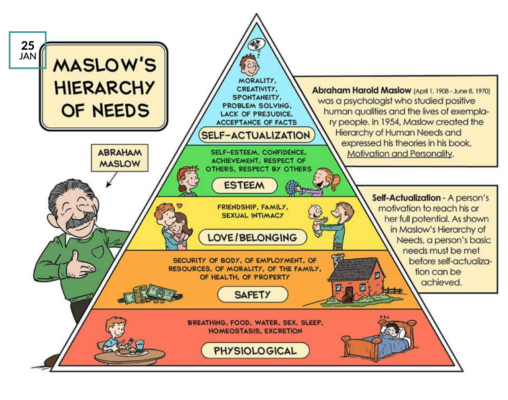
Managing Stress and Staying Confident for the NCLEX
The Psychological Aspect of NCLEX Success
Preparing for the NCLEX is as much a mental challenge as it is an academic one. High levels of stress can cloud judgment and reduce your ability to recall important information. Implementing stress management techniques is essential for staying sharp and confident during your preparation and on exam day. This is how to pass the nclex exam. Let’s move on.
Practical Stress Management Techniques
Mindfulness and Meditation
- Dedicate 10 minutes daily to mindfulness exercises.
- Use apps like Calm or Headspace for guided meditation sessions.
Exercise Regularly
- Engage in moderate physical activity such as walking, yoga, or swimming. Exercise increases endorphins, which improve mood and cognitive function.
Positive Affirmations
- Replace negative thoughts like “What if I fail?” with positive ones such as “I am well-prepared and capable of passing.”
How to Build Exam Confidence
- Simulate the exam environment during practice tests to reduce anxiety about the unknown.
- Review progress weekly to remind yourself of how far you’ve come.
- Reward yourself for achieving small study milestones.
The NCLEX Scoring System Demystified
Understanding how the NCLEX is scored can help reduce anxiety and give you clarity on what to expect.
How to Pass the NCLEX: How NCLEX CAT Works
The NCLEX uses Computerized Adaptive Testing (CAT), meaning that the difficulty of questions adapts based on your performance:
- Higher Ability Level: If you consistently answer questions correctly, you’ll receive harder questions.
- Confidence Interval: The exam continues until it determines with 95% certainty whether you’ve met the passing standard.
Why the Number of Questions Varies
- You may finish the exam after answering the minimum number of questions (75 for RN, 85 for PN) if the system is confident in your ability.
- Answering the maximum number of questions does not indicate failure; it means the system needed more data to determine your ability.
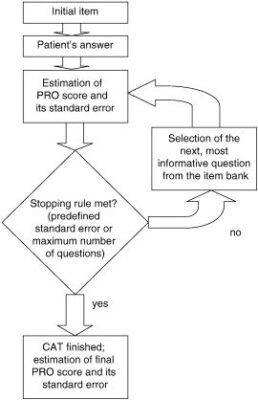
Pass/Fail Results
- Pass: Indicates you’ve demonstrated the minimum required competency to practice as a nurse.
- Fail: Offers insight into which areas need improvement for retakes.
Quick Results Option
- Many states offer unofficial results within 48 hours for a small fee.
- Official results, however, take 2–4 weeks to be mailed.
Find out How Many People Pass the NCLEX on Their First Try? Statistics and Insights
How to pass the nclex: What to Bring on Exam Day
Arriving prepared on exam day ensures you can focus entirely on the test without distractions.
Essential Items
- Government-Issued Photo ID: Ensure it matches the name on your registration.
- Authorization to Test (ATT): Print a copy or keep the email accessible.
- Comfortable Clothing: Dress in layers as testing centers can vary in temperature.
- Snacks and Drinks: Pack these for break times to maintain energy.
What NOT to Bring
- Personal items such as bags, phones, and wallets are prohibited inside the testing room.
- Study materials and notes must be left at home or stored in lockers at the test center.
Exam Day: A Step-by-Step Guide
Before the Exam
- Arrive Early
- Plan to be at the testing center at least 30 minutes before your scheduled time.
- Practice Relaxation Techniques
- Use breathing exercises to calm nerves before entering the exam room.
During the Exam
- Stay Focused: Avoid second-guessing your answers unless absolutely necessary.
- Take Scheduled Breaks: Use these to reset mentally and physically.
Frequently Asked Questions About the NCLEX
Addressing common questions ensures candidates feel fully informed and confident.
How Many Times Can I Take the NCLEX?
- Candidates are allowed to take the exam up to 8 times per year, with a 45-day waiting period between attempts.
- Some states may impose additional restrictions on retakes.
How Long Does It Take to Get NCLEX Results?
- Quick Results: Available within 48 hours for many states.
- Official Results: Typically arrive in 2–4 weeks.
Is the NCLEX Hard?
- Difficulty depends on preparation and test-taking strategies. While the NCLEX is challenging, a structured study plan significantly improves the likelihood of passing.
Can I Work Without Passing the NCLEX?
- No, passing the NCLEX is a legal requirement for obtaining a nursing license in the U.S. and Canada.
How to know if you passed the nclex right away?
- This can happen by accurately following the steps outlined in this article. Alternatively, using nclexreviewprep.com immediately boosts your chances to 100%.
Join Study Groups
- Collaborating with peers can help reinforce your knowledge. Discuss challenging concepts and exchange strategies for answering difficult questions.
Leverage Professional Tutoring Services
- If certain topics remain unclear, consider hiring a tutor or enrolling in a prep course. Services like our RN Exact Exam Questions & Answers provide targeted support. You can also benefit from our ideal daily study routine that guarantees success.
Conclusion: Achieving Your NCLEX Goals
Passing the NCLEX on your first attempt requires more than just studying—it demands strategic planning, effective time management, and a positive mindset. By following the actionable steps outlined in this guide, you’ll position yourself for success and take a significant step toward a rewarding career in nursing. For more information on how to know if you passed the nclex right away or on how to pass the nclex, please visit our blog.

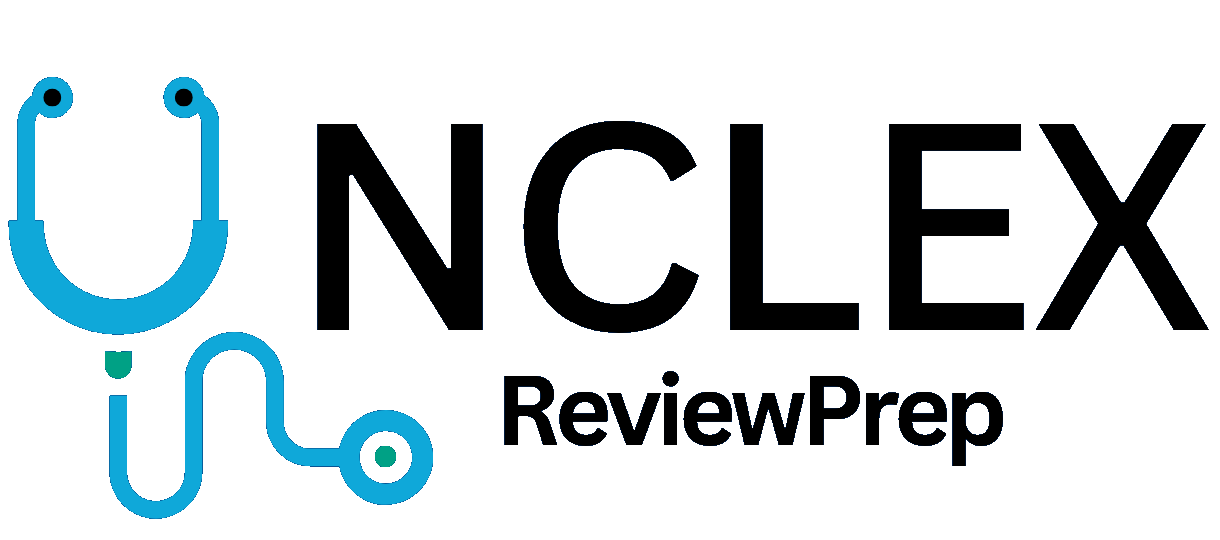
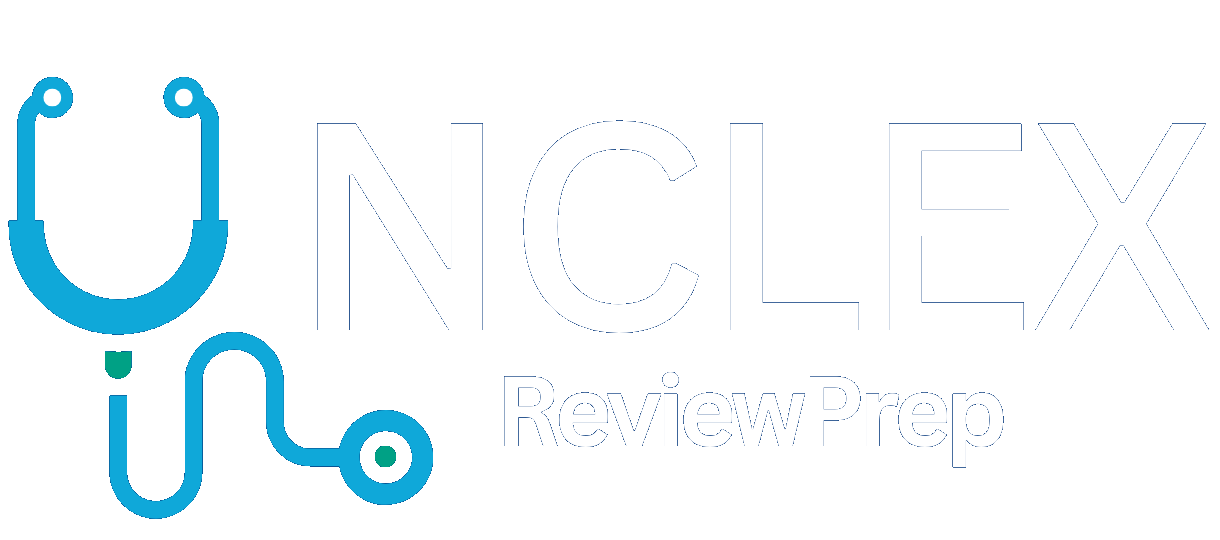
Pingback: How to Study for NCLEX - 5 Weeks are Enough for your Exam